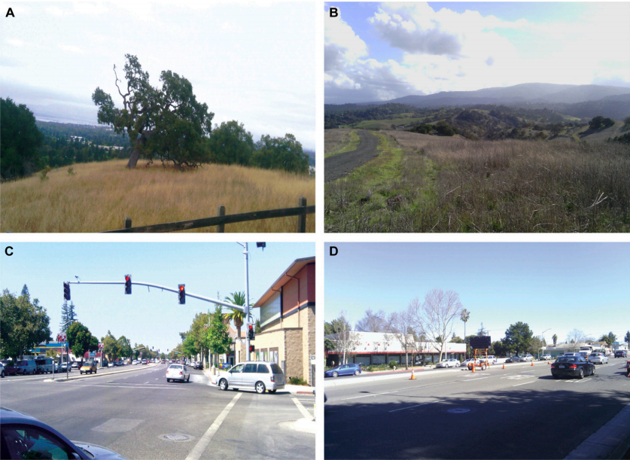The wonders of nature! A small study found that taking a 90 minute walk in "natural" (wild) environments boost mental well-being by reducing rumination (obsessive, negative thoughts focused on yourself). It is thought that rumination is associated with increased risk for depression and other mental illnesses. Rumination actually shows up in MRIs scans as increased activity in a brain region called the subgenual prefrontal cortex, an area of the brain that regulates negative emotions. The researchers suggest that these findings support the need for natural areas (parks) in urban areas.There have been a number of other studies finding that nature reduces stress and improves well being. Bottom line: take a walk in nature to feel better. From Medical Xpress:
Walking in nature found to reduce rumination
A team of researchers working at Stanford University has found that people walking in a "natural" environment tend to engage in less rumination...Biomedical researchers believe that some instances of both anxiety and/or depression come about due to what they call rumination—constantly flogging oneself with criticism of past mistakes and some studies have suggested that living in an urban environment might contribute to an increase in rumination. In this new effort, the researchers sought to learn if it might be possible for people to lessen the degree of rumination they engage in by simply going for a walk in a natural setting.
To find out, the team enlisted the assistance of 38 reasonably healthy adult male and female individuals—they were asked to participate in a study that consisted of taking questionnaires and undergoing fMRI scans before and after going for an hour and a half walk. The volunteers were split into two groups, one got to walk in a grassy area near the Stanford campus that was lined with lots of trees—the other group found themselves marching around in a strictly urban setting. The questionnaires were designed to illuminate rumination, while the fMRI scans focused on the subgenual prefrontal cortex—prior research showed it tended to light up during periods of rumination.
Afterwards, the researchers analyzed and crunched the data from the questionnaires and brain scans and came up with a rumination score which they then used to compare people in the two groups. They found that rumination remained level for the urban walkers but fell on average from 35.4 to 33.1 for the nature walkers. This the team claims, shows that taking a walk in a natural environment setting can reduce rumination, and possibly reduce symptoms of anxiety and depression, though they acknowledge that their sample size was small and suggest more research will need to be done to confirm their findings.
This study reveals a pathway by which nature experience may improve mental well-being and suggests that accessible natural areas within urban contexts may be a critical resource for mental health in our rapidly urbanizing world.
 Views from the nature (A and B) and urban (C and D) walks the participants took (PNAS)
Views from the nature (A and B) and urban (C and D) walks the participants took (PNAS)
